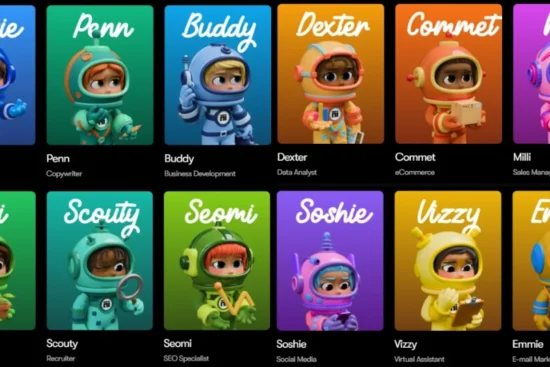
In the rapidly evolving world of computing, hybrid computing—a paradigm that integrates classical and quantum systems—has emerged as a transformative approach to solving some of the most complex computational challenges. While classical computers have been the backbone of technological progress for decades, quantum computers promise to revolutionize problem-solving in fields where classical systems face significant limitations. Combining the strengths of both offers a powerful new way forward.
This blog explores what hybrid computing is, how it works, and the implications for various industries and scientific fields.
What is Hybrid Computing?
Hybrid computing refers to the integration of classical and quantum computational systems to leverage the unique advantages of both. Classical computers use binary code—strings of 0s and 1s—to perform calculations. They are excellent at tasks involving linear, step-by-step processes and have been optimized over decades for general-purpose computing.
Quantum computers, on the other hand, utilize quantum bits or qubits, which can exist in multiple states simultaneously due to a phenomenon called superposition. This enables them to perform certain calculations exponentially faster than classical systems, particularly in areas like optimization, cryptography, and complex simulations. However, quantum computers are not yet standalone replacements for classical systems.
Hybrid computing aims to merge these two paradigms, enabling systems to divide computational workloads between classical and quantum processors depending on the task. This combination plays to the strengths of each system: the precision and reliability of classical systems and the unparalleled processing power of quantum systems for specific problem sets.
Why Combine Classical and Quantum Systems?
Despite their potential, quantum computers are still in their infancy. Their development faces several challenges, including:
- Error Rates: Qubits are highly susceptible to noise and decoherence, leading to errors in computations.
- Scalability: Building and maintaining a large number of stable qubits is a significant technical hurdle.
- Specialization: Quantum computers excel in specific domains but are not versatile enough for general-purpose tasks.
Classical computers, on the other hand, are robust, scalable, and capable of handling the vast majority of today’s computational needs. By combining these systems, hybrid computing allows quantum computers to tackle niche problems while classical systems handle the broader, more stable workloads.
How Does Hybrid Computing Work?
The architecture of a hybrid computing system typically involves a classical computer interfaced with a quantum processor. A classical processor acts as the control unit, delegating specific tasks to the quantum processor and integrating the results back into the overall workflow.
Key Components of a Hybrid System:
- Classical Processor: Handles data preprocessing, task allocation, and result interpretation.
- Quantum Processor: Performs specialized computations, such as solving optimization problems or running quantum simulations.
- Middleware: A software layer that facilitates communication between the classical and quantum systems, ensuring seamless data transfer and task management.
The Workflow of a Hybrid System:
- Problem Definition: A computational problem is defined and broken into sub-problems.
- Task Allocation: Tasks are evaluated to determine whether they are better suited for classical or quantum computation.
- Execution: Classical tasks are processed on traditional hardware, while quantum-appropriate tasks are sent to the quantum processor.
- Integration: Results from the quantum processor are fed back into the classical system to complete the overall computation.
Applications of Hybrid Computing
Hybrid computing is poised to address problems that were previously considered intractable for classical systems alone. Here are some of its most promising applications:
1. Optimization Problems
Optimization is a common challenge in industries ranging from logistics to finance. For example:
- Supply Chain Management: Quantum computers can evaluate countless routing options for shipping and delivery, while classical systems handle data collection and visualization.
- Portfolio Optimization: In finance, hybrid systems can analyze vast datasets to find the best investment strategies, accounting for multiple variables.
2. Drug Discovery
Drug discovery involves simulating complex molecular interactions, which often require massive computational power. Hybrid systems allow classical computers to handle initial data processing while quantum computers simulate molecular structures and predict interactions more efficiently.
3. Cryptography
Quantum computers pose a threat to current encryption methods but also offer solutions. Hybrid systems can enhance cryptographic algorithms, enabling the development of quantum-resistant encryption methods while classical systems manage secure communications.
4. Machine Learning and AI
Hybrid computing enhances machine learning models by enabling faster and more accurate optimization of algorithms. Quantum processors can accelerate training processes, while classical systems manage data preprocessing and deployment.
5. Climate Modeling and Energy
Accurate climate modeling involves simulating complex systems with numerous variables. Hybrid computing systems can accelerate these simulations, providing insights into climate change mitigation and renewable energy optimization.
Challenges in Hybrid Computing
While hybrid computing holds immense promise, it is not without challenges.
1. Integration Complexity
Combining classical and quantum systems requires sophisticated middleware and algorithms to ensure seamless communication. Achieving compatibility between the two architectures is a technical challenge.
2. Cost
Quantum processors are expensive to develop and maintain. Building a hybrid system requires significant investment in hardware, software, and expertise.
3. Skill Gap
The field of quantum computing is highly specialized, and there is a limited pool of professionals trained in both quantum and classical computing. This skill gap could slow adoption.
4. Limited Quantum Applications
Not all problems are well-suited to quantum computing. Identifying use cases where quantum processors can make a meaningful impact is crucial to the success of hybrid systems.
The Future of Hybrid Computing
The future of hybrid computing is closely tied to advancements in both classical and quantum technologies. Several trends are shaping its development:
1. Cloud-Based Quantum Computing
Companies like IBM, Google, and Amazon are offering cloud-based quantum computing platforms, making it easier for businesses to experiment with hybrid systems without significant upfront investment.
2. Improved Quantum Hardware
Advancements in qubit stability and error correction will make quantum processors more reliable and scalable, enhancing their integration into hybrid systems.
3. Quantum Algorithms
Ongoing research is developing quantum algorithms tailored for hybrid systems, enabling more efficient problem-solving.
4. Industry Collaboration
Partnerships between academia, industry, and governments are accelerating the development of hybrid computing systems. Initiatives like the Quantum Internet and emerging standards for quantum-classical communication are paving the way for broader adoption.
Conclusion
Hybrid computing represents a critical step in the evolution of computational technology, bridging the gap between the classical systems that power our current world and the quantum systems that promise to redefine what is computationally possible. By combining the strengths of classical and quantum systems, hybrid computing enables us to tackle complex challenges across industries, from optimizing supply chains to discovering life-saving drugs.
While challenges remain—such as high costs, integration complexity, and limited applications—the potential of hybrid systems to transform industries and solve previously intractable problems is undeniable. As quantum technology continues to mature, hybrid computing will play a pivotal role in shaping the future of innovation.












